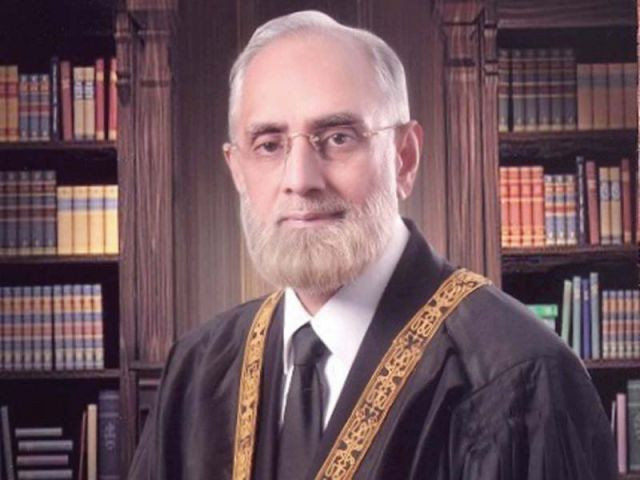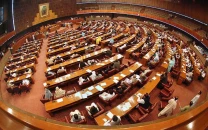Free from expediency: No pressure on judiciary at any level, says CJP
Praises Sindh ombudsman for resolving public grievances

Chief Justice of Pakistan (CJP) Anwar Zaheer Jamali. PHOTO: FILE
Chief Justice of Pakistan (CJP) Anwar Zaheer Jamali has rejected the notion that there is any pressure on the judiciary, insisting that the country’s courts were free from pressure or expediency at all levels.
“Let me say with full responsibility there is no pressure on the judiciary at any level,” the CJP said while addressing a seminar on Saturday at the Sindh Governor’s House. The CJP said those spreading such theories themselves succumb to expediencies and pressures because of their incompetence.
Judicial woes: No room for corrupt judges, says Justice Shah
“If you are upright and have no personal agenda then there is no question of pressure,” he said, adding that the judiciary was free from any pressure and would continue to be this way.
The chief justice said justice is the foundation of any society, adding that if the people do not get timely and cheap justice from government institutions, then they look up to other departments such as the ombudsman’s office.
Lauding the performance of the Sindh Ombudsman, he said it was resolving public grievances without engaging any lawyer or paying heavy fees. He recalled that provisions were added in the 1973 Constitution for the establishment of the office of the Ombudsman and for the first time, the definition of institutional maladministration was defined when the act was passed afterwards.
The CJP observed that the government’s prime duty is to bring about improvement in the socio-economic system. “The supremacy of the institutions should be established over personalities,” he said.
He said the judiciary faces a burden of cases, which are taken up following due procedures. He opined that if the issues of minor nature are resolved at the platforms like the ombudsman’s office then it will lessen the burden on the judiciary.
Chief justice asks bars to restrain unruly lawyers
Justice Jamali said the Supreme Court’s Human Rights Cell (HRC) had over 21,000 applications pending till January 2014, while 54,916 new applications were received by November 2015. “However, the apex court has disposed of 65,291 applications either at the level of the HRC or at the judicial side by initiating suo motu proceedings,” he said.
Speaking on the occasion, Sindh Governor Dr Ishrat Ul Ebad Khan said there were only three offices of the ombudsman in the province in 2003, which have now been increased to 16. He said approval had been accorded to five more offices, which would be set up soon.
Published in The Express Tribune, December 20th, 2015.



















COMMENTS
Comments are moderated and generally will be posted if they are on-topic and not abusive.
For more information, please see our Comments FAQ